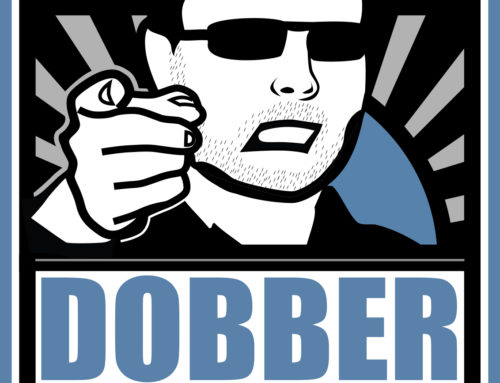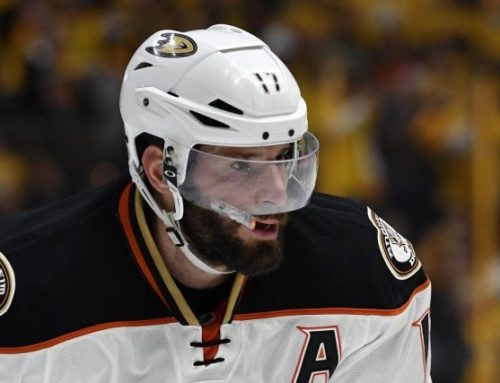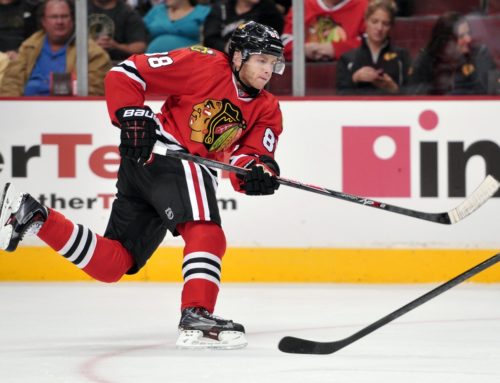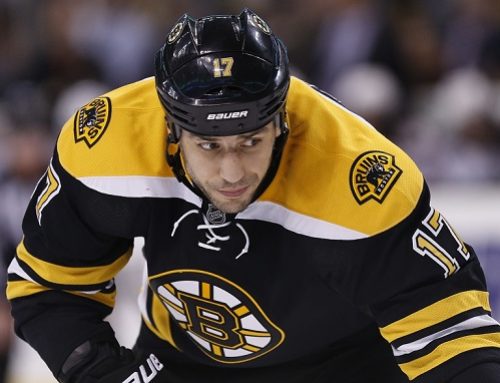
You have to be pretty famous to have accolades named in your honour, and to be the namesake of a (pop) cultural touchstone like the Darwin Awards, well, you’re approaching Brayden-Schenn-at-the 2011-World-Juniors levels of awesomeness.
Natural Selection is for the Weak
The funny thing about those annoying forwards that your “cool” uncle is so fond of passing on is that they aren’t too far off Charles Darwin’s original thought. Natural selection, often described as “survival of the fittest”, tends to reward useful attributes and penalizes less-useful attributes (like being stupid enough to try this). So cheering for natural selection seems, well, natural.
The problem with natural selection is that it relies on luck. While often misunderstood as a system in which the strong and the smart win out over the weak and the stupid, this process actually describes how species will slowly adapt to their local environments through the relative success rates of random (and usually slight) mutations.
A nerdy example: if you’re a bird that munches on insects that live in trees and you happened to have a longer beak than your buds (insert giggles), then you’re likely to get more to eat – which puts you at an advantage for passing on your long-beak genes (hello ladies). Let that little scenario run for awhile, and now the bird population likely has longer beaks than before. But what happens if all those bugs die out because the weather patterns changes? Well, so much for that long beak being useful.
You all know enough about hockey to come up with your own NHL version of this story (if you’re still scratching your heads google “new NHL, can-opener, Bryan McCabe, useless now”).
NHL clubs can’t afford to wait for natural selection; they need to anticipate new trends in the game if they want to win. They need to aggressively work to stay ahead of the curve on which players are going to be the best, and what tactics are going to work. Likewise, you have to learn how to adapt more quickly than your competitors if you want to win.
Learning to Learn
Sadly, I don’t get to write about hockey for my day job. Instead, I work for an organization that has competitors and naturally my organization is interested in winning (I’m sure yours is, too). One of the ways that my organization tries to adapt quickly is by aggressively learning from its experiences. Winners don’t take a trial-and-error approach. They chase down information, process it, and then act on it in ways that will make them more competitive, and they do this as quickly as possible (remember the OODA loop?).
One aspect of being aggressive is categorizing your learning, which in turn helps you to maintain perspective on what you know, and how to make best use of it.
Back in 1984, a fellow by the name of Benjamin Bloom came up with a simple hierarchical system of categorizing cognitive learning (which was later revised to the below list). Each type of learning is built upon the previous, and is more valuable.
Let me show you how this (increasingly nerdy, I admit) information relates to your quest for fantasy hockey world domination.
Remembering: The lowest rung on the ladder. This involves recalling facts. How many days in the past five seasons Marian Gaborik has missed due to injury (many). The (again, many) ways the Pittsburgh Penguins’ 2011 Winter Classic sweater was horrendous. The number of shots Eric Staal took in the second half of the 2009-10 season (also many). Collectively, facts are powerful, and there is a place for reference material like this in all successful organizations, but if you try to run your team simply by trying to remember what you read, then you’re doomed in competitive leagues. Especially in the so-called Information Age, facts are so quickly distributed that their value, even when brand-new, is low (it wasn’t always this way in fantasy hockey).
Understanding: Instead of learning facts, you're learning concepts at this level. This type of learning allows you to interpret and explain situations. For example, Dobber’s fourth-year breakout trend, or Ma’s observations about ice time and shots taken as predictors of scoring success for skaters (I can’t help but think of those as “Ma’s Laws”). This type of learning isn’t isolated, instead, concepts make sense in a number of situations and are therefore much more useful than facts. You probably shouldn’t read fantasy hockey advice that doesn’t regularly supply you with (and reinforce) useful concepts.
Applying: We all do this by playing, but the proof is usually in the results. Once you’re all full of knowledge you have to execute. All the understanding in the world won’t help you if you keep missing your waiver wire deadlines! Those who are applying concepts will tend to do better than those simply making decisions based on a catalogue of facts.
Analyzing: Many fantasy hockey GMs don’t do much of this except half-heartedly when something goes wrong. But being able to compare and organize information is crucial to success in complicated endeavours. That’s one of the reasons I love this site – everyone is so damn fantasy-hockey intelligent. There’s a lot of quality analysis going on in the forums and comment sections.
Evaluating: Related to analyzing, this learning involves experimenting and judging. Again, unlike many fantasy sites, this site is fertile with evaluation-level learning whether it be recent retrospect pieces by its contributors, or discussions in the forums.
Creating: Finally, this level of learning involves creating new ideas and inventing novel approaches. If you’re doing this well and often, you might consider getting your own site! But I’m sure we’d miss you if you did.
Being aware of how to classify the learning possibilities from different types of information you encounter is a useful element of staying ahead of the other guy, whether it is Wal-Mart or the Taliban that keeps you up at night.
I don’t know if this was a fun read or not, but I do know that if you start viewing your fantasy hockey information from this point of view, you’ll be more efficient and effective in putting your learning to work and you’ll find yourself operating at the higher levels of analysis and evaluation more often – and with better results.
Darwin was a bright guy, but don’t on natural selection as a useful strategy for life or fantasy hockey. It's something to run away from as fast as you can. You need to fight to stay ahead by learning faster and better than your competitors.
Or old man Darwin might get you, too.





 CAR
CAR FLA
FLA BUF
BUF EDM
EDM DAL
DAL OTT
OTT ANA
ANA COL
COL WPG
WPG
